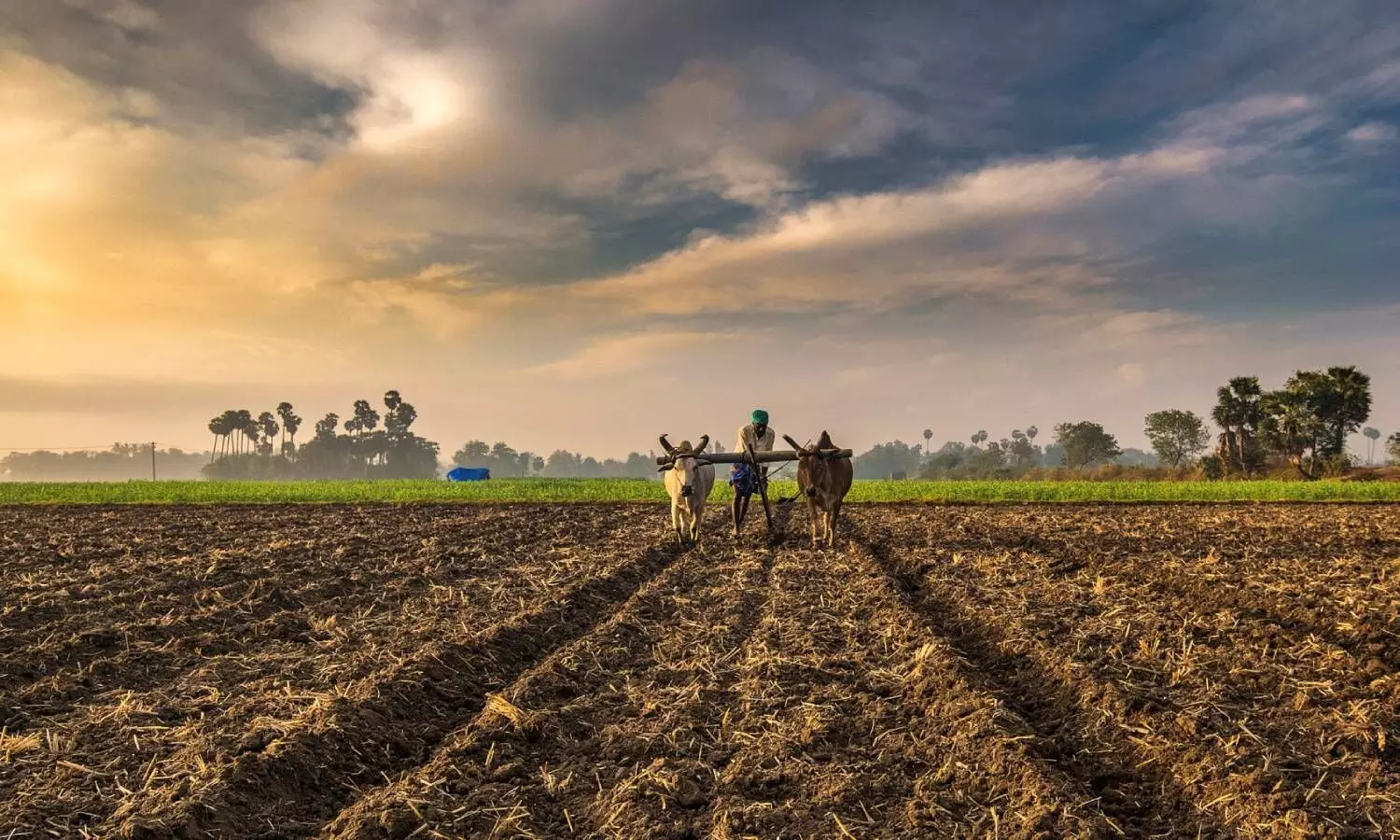Climate change threat to Indian agriculture, to reduce crop yields in future
The Rainfed rice yields in India are projected to reduce marginally by around 2.5 per cent and irrigated rice yields by 7 per cent in 2050.
By Newsmeter Network
Hyderabad: The Union ministry of agriculture, on 9 February, said that due to climate change, the Rainfed rice yields in India are projected to reduce marginally by around 2.5 per cent and irrigated rice yields by 7 per cent in 2050. Further, wheat yield is projected to reduce by 6-25 per cent in 2100 and maize yields by 18-23 per cent. Future climates are likely to benefit chickpeas with increase in productivity (23-54%).
Replying to a question in the Parliament, the Union minister of agriculture and farmers welfare, Narendra Singh Tomar, said the impact of climate change on Indian agriculture was studied under National Innovations in Climate Resilient Agriculture (NICRA).
The Indian Council of Agricultural Research (ICAR) initiated network project NICRA in 2011 to address the impact of climate change on Indian agriculture. NICRA is being reviewed by a high-level monitoring committee (HLMC) under the chairmanship of secretary, DARE & DG, ICAR and other members representing different ministries. This committee recommends measures to be taken through NICRA to make Indian agriculture more resilient to changing climate. Besides, an expert committee periodically reviews the project and gives advice on various aspects.
"Vulnerability assessment of Indian agriculture to climate change is undertaken by Indian Council of Agricultural Research (ICAR). Such an assessment was for 573 rural districts of India (excluding the Union Territories of Andaman and Nicobar Islands, Lakshadweep). Based on the vulnerability analysis, 109 districts out of 573 rural districts (19% of total districts) are 'very high-risk' districts, while 201 districts are risk districts," said the minister.
He said integrated simulation modeling studies indicated that under representative concentration pathway 4.5, maximum temperature is expected to increase by 1 to 1.3°C in 256 districts, by 1.3 to 1.6°C in 157 districts (2020-2049). The increase ranged from <1.3°C in 199 districts to >1.6 °C in 89 districts. The cultivation of wheat in these districts is likely to be affected by heat stress.